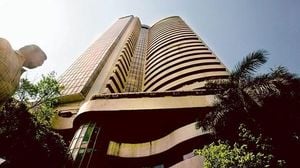South Korea's stock market has been responding dynamically to recent economic indicators and market movements from the United States, particularly as optimism grows following significant gains among U.S. tech stocks.
On January 28, 2025, U.S. markets exhibited strong upward trends leading up to the closing bell, with the Nasdaq composite index rising over 2%. Major companies such as Nvidia experienced substantial recoveries, with its stock climbing by 8.82%, indicative of investors' renewed interest following recent low-cost buy opportunities.
The South Korean markets mirrored this enthusiasm, as domestic investors began shifting their strategies based on U.S. performance, particularly focusing on major players such as Tesla and Apple, whose stock fluctuations have substantial ripple effects globally. Kim Yun-kyu from 톱스타뉴스 noted, “The market's overall upward trend suggests careful investor confidence.”
The rise of U.S. indices—including the Dow Jones and S&P 500—has surpassed projections, providing South Korean investors with encouragement to continue or increase their investments. Investors are particularly interested in technology, which has shown resilience amid global challenges. For example, the CBOE’s volatility index (VIX) decreased, signaling relieving market uncertainties, something investors have been cautiously optimistic about.
Despite the recent positive movements, concerns linger due to the underlying economic data released from the U.S., which indicate potential obstacles. On January 28, reports showed U.S. durable goods orders fell by 2.2%, showcasing consecutive monthly declines. Although capital goods orders, excluding defense and aircraft components, increased by 0.5%, this was insufficient to dispel fears of broader economic slowdowns.
The consumer confidence index also painted a disheartening picture, declining to 104.1 from expectations of 105.6. This downward trend hints at possibly waning U.S. consumer sentiment, which poses challenges for businesses relying on domestic spending. Kim Si-hyeon from 연합뉴스 remarked, “There are concerns over tech stock performance due to AI competition affecting investor sentiment.”
Investors are not only focused on the immediate U.S. market performance but are also closely monitoring developments surrounding interest rate changes by the Federal Reserve. Predictions for a rate cut are surfacing, with estimates estimating 31.1% for March, which could feed back positively to investor attitudes across South Korean markets.
Market participants in South Korea are showing strong affinity for technology stocks, dubbed the “Magnificent Seven,” which includes companies like Apple and Nvidia. These stocks’ performance will serve as bellwethers for investor sentiment moving forward. Notably, Apple saw its stock rise by 3.65%, maintaining strong momentum over recent trading sessions.
Meanwhile, Tesla and IonQ's shares have drawn mixed reactions. Tesla, albeit slightly steady, remains under scrutiny due to concerns over competitive pressures within the EV market, particularly from the ramped-up efforts of Chinese companies. IonQ, notable for advancements in quantum computing, has recovered slightly as interest grows but stays limited by market volatility.
Overall, South Korean investors appear cautiously optimistic but are advised to adopt careful strategies amid fluctuations. The broader global economic contexts, including AI market competition and U.S. consumer confidence shifts, are expected to critically impact local market dynamics.
Looking forward, as investors gear up for potential policy changes, their adaptability will likely determine their success in what could be an increasingly complex investment environment. The interplay between South Korean and U.S. markets emphasizes the need for continual market analysis and flexibility as conditions evolve.
The interconnection between the stock market trends observed in the U.S. and South Korea highlights not just the fragility but also the resilience of global markets as investors recalibrate their strategies based on comprehensive economic indicators and sentiment.



